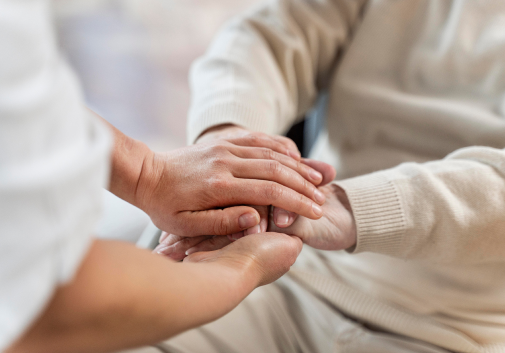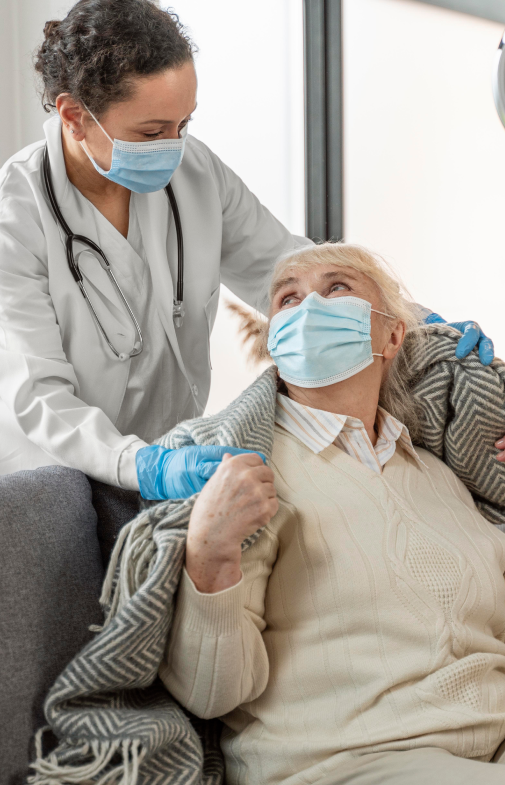Home Health Aide San Diego
Whether you or someone you love is having difficulty with activities of daily living (ADL’s), a home health aide can provide the care assistance needed to maintain a normal everyday routine with dignity and self-assurance.
The decision of hiring a caregiver for in home care is not to be made lightly. A home health service is intended to provide quality senior care for the purpose of restoring dignity and independence to elderly or sick individuals who may otherwise be unable to care for themselves. Most of us take daily personal care for granted until that day arrives when performing even the most basic of personal hygiene functions becomes too much of a challenge.
Studies have shown that aging in place is far more preferable and often more beneficial to the health and well-being of elderly people. Home care services San Diego can be the solution for allowing senior citizens to enjoy their Golden Years in the only home they’ve known for much of their life, instead of an assisted living facility or nursing home.
But can make those tasks a lot less challenging by offering essential care assistance such as personal hygiene, light housework, meal prep, and help with taking the proper prescription medications.
If you or your loved one are still curious as to how a home health care aide can have a positive impact on an individual’s quality of life, then consider all of the benefits of home care services San Diego.
What is a home health aide?
If an infirm individual or senior citizen has begun to demonstrate a loss of capability or interest in caring for him or herself for any number of reasons, a home health aide can be a critical caregiver in that senior’s life. A normal routine may become tough to maintain as we get older as memory fades, physical capacities weaken, and psychological or emotional issues might interfere with the activities of daily living.
Some of the strongest indications that a person is having trouble taking care of themselves can be found in a marked change of behavior. Failure to practice common personal or dental hygiene, failure to prepare meals, loss of appetite, patterns of carelessness, forgetfulness, or otherwise reckless behavior can all be obvious signs that an elderly person needs someone to help keep them healthy, safe, and comfortable. A home health aide can provide that care and safety in a home environment, without the need for moving into a care facility.

What does a home health aide do?
A hospice home health aide is trained to provide personal care to patients wherever they call home. The home health aide is part of the interdisciplinary hospice team. They’re also in constant communication with the hospice team regarding any changes in patient’s ability to perform activities of daily living, continence changes, etc.
Home health aides may be hired privately by patients or their families or provided by the hospice team. The hospice home health aide visits the patients one to three times a week. The hospice home health aide will educate family members and other caregivers on patient care so that the families will feel comfortable providing day to day care to the patient between home health aide visits.
Hospice home health aides are not nurses and cannot provide any type of professional nursing care nor offer any medical advice. The home health aides follow a care plan developed by a registered nurse and are also supervised by the RNs.

Duties of the hospice home health aide:
- Light house cleaning
- Shower or bed bath
- Dressing of the patient
- Hair wash of the patient
- Oral care
- Help with toileting or incontinent care
- Assist with ambulation
Personal Hygiene and Grooming Assistance
Individuals with diminished capacities may have difficulty performing personal care duties for themselves and it’s the responsibility of the home health aide to assist in these tasks. These include bathing, grooming, getting dressed, using the toilet, all of the essential necessities of daily life that we don’t often think about, we just do them.
But for individuals who have a medical condition limiting their abilities or elderly clients who have trouble remembering to perform these tasks or difficulty in doing so, a home health aide is a vital ally. When someone is unable to do these things by him or herself, the home health aide will need to step in. That might require assisting with mobility, helping to perform the tasks of bathing, shaving, combing hair, brushing teeth, cleaning and installing dentures, applying make-up, getting dressed, among other activities. If the client is unable to get to the bathroom or the toilet on their own, the home health aide will need to step in and assist in those duties as well. Some clients may need assistance getting in and out of bed or may not be able to leave the bed at all, therefore, it may be necessary to administer sponge baths and other daily grooming tasks while the client is immobile.

Light Housekeeping Assistance
A home health aide can keep the home clean and tidy. Individuals who are having trouble caring for themselves will typically need assistance in caring for the home. While the home health aide is not intended to be a housekeeping service, the aide can do some basic housekeeping duties to ensure the home doesn’t fall into squalor and disarray. Simple things like trash removal, dishes, and sweeping floors and wiping of surfaces may be included among the duties of a home health aide. When an individual is immobile, these tasks become very important to maintain on a routine basis and it’s up to a home health aide to take on these duties to provide care services to the client.

Meal Preparation Assistance
Preparing and cooking meals utilizes tools and appliances that could pose a significant hazard to someone who is having difficulty with his or her mental and physical faculties. Kitchen utensils can be very sharp and an individual with diminished capacities could become injured while using one or more of these items. Elderly people sustain injuries most often in the kitchen than any other room in the home. A stove or toaster left unattended could cause a fire and put that individual at risk for severe injury or death.
Planning and preparing meals is a necessity of life. We all need food to eat and good nutrition is the pathway to positive health outcomes. But impaired or elderly individuals may have difficulty planning meals and opt for less healthy choices instead. A home health aide can be a useful partner in ensuring that the individual receives proper nutrition every day, reduces the intake of less healthy foods with empty calories and low-quality ingredients, and keeps the client on any prescribed diet regimen that has been recommended by a doctor.
How to work with a home health aide
Much like with any other employee there are some boundaries that must be set and followed. Home health aides are only trained to perform certain tasks and the expectations of the aide should be set with these limits in mind. A home health aide should not perform any tasks that go beyond their training.
Home health aides are typically hired to care for one individual or, in some cases, an elderly couple who share a home. The aide should not be expected to perform duties for any other individual who may live under the same roof as the client, unless the aide has been hired to provide care for that individual as well. Expecting the aide to perform additional duties outside of those for which the aide has been initially hired is unfair to the home health aide, the client for whom the aide was hired, and it may be in violation of federal, state, and/or local statutes.
Simply put, treat the home health aide with respect at all times.
